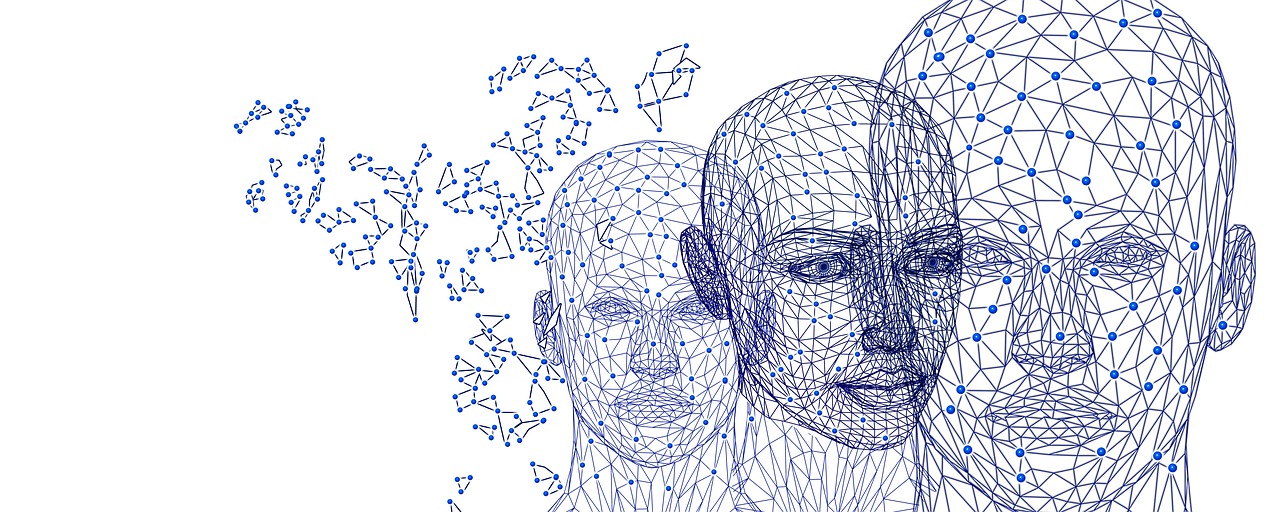The following is the first of a three-part series. It will appear as a full article in the Fall 2021 issue of the Journal for Cultural and Religious Theory.
Introduction
The matter of truth presents itself as central to Christianity, since the Johannine Jesus presents himself as the “way, the truth and the life” (John 14:6). In the following we will pursue the question how today still an intellectually honest understanding of truth can show its everyday relevance.
First of all, reference is made to the First Vatican Council with the Constitution Dei Filius.[1] Here an understanding of revelation can be stated that understands God’s revelation to man as primary communication of doctrines and statements of faith. Dei Filius speaks here of truths in plural, which through revelation are proportionally accessible to the human mind (as an intellectual object). The source of these truths is God himself, who has entrusted these doctrines and statements of faith to his Church in order to guard them faithfully and declare them infallible (DH 3020).[2]
The Second Vatican Council joins this plurality of doctrines and beliefs in Unitatis Redintegratio (UR 11), which are accessible through revelation (and also from tradition); but here it points to a qualitative weighting (for the ecumenical dialogue), because “there exists a ‘hierarchy’ of truths, since they vary in their relation to the fundamental Christian faith.”[3] In order to indicate the authoritative criterion for this order, the Constitution Dei Verbum of the same Council can be cited. Here, the Council speaks of truth as a singular and personal figure which is Jesus Christ as the self-revelation of God (DV 2).[4] Jesus Christ reveals himself to man in a personal way and gives access in a communicative way to the one, divine truth in which man’s salvation is to be found.[5]
Starting from the biblical and doctrinal foundation, the question arises for Catholic theology how an understanding of truth for the present is possible that does justice to both God’s self-revelation and biblical witness, without stating a contradiction between the two councils. In order to keep the scope of such an understanding as open as possible, we do not approach truth in terms of analytical philosophy. Referring to theories of continental philosophy, we treat truth primarily in its existential dimension with regard to its subjective relevance in one’s own life.Subsequently, it is up to theology to connect and process these insights for constructive theology.
By doing so, we are taking truth as the establishing moment for a subjective perspective and validity for one’s own life. To achieve this, we look into the philosophical interpretation of Paul by Giorgio Agamben. Then we try to connect our findings to Sören Kierkegaard’s concept of irony and the subject studies of Michel Foucault, in order to identify the Church as a society of Christian Irony in commitment to (personal) truth. The aim is to overcome an understanding of truth that is coded purely binary patterns (true/false), which is why we deploy a philosophical understanding of irony.
Paul and the Body of Christ
For Paul, the question of truth was a decisive moment for human self-becoming, a point which has recently received enormous attention in continental political philosophy.[6] In Badiou’s reading of Paul’s letter, it becomes clear that philosophical truth as an abstract concept is not of particular interest to Paul. His disapproval of philosophical truth, understood as timeless wisdom, stems from the fact that neither the philosophers were able to recognize God by speculation on their own accord, nor that for them the revelation of Jesus Christ can prove to be incompatible with the wisdom of the world (1 Cor 1:18–25). According to Paul, there was in principle the intellectual possibility for people to recognize God as their Creator out of reason, but the refusal of intellectual belief led to a distorted and wrong perception of reality and thus also to a distorted ability to know (Rom 1:18–25).[7]
Because, according to Paul, real insight comes from God and can also be traced back to him, and further, it can only happen in acknowledging agreement with him; those without faith are thus also excluded from insight.[8] The intellectual and existential refusal of God leads man, by his own choice, to have only an inauthentic knowledge of himself and the world. The revelation of Jesus Christ shows this discrepancy between worldly understanding and gracious insight in the clearest possible way: a comprehensive capturing of the world cannot be made from a merely worldly point of view, for only by including the universality of God as creator can an appropriate interpretation of the world succeed.[9] Between the philosophical reasoning of worldly wisdom and the gospel of Jesus Christ, there is a striking tension, which is why Alain Badiou also characterizes Paul as an anti-philosopher who rejects an understanding of truth that is not characterized by existential relevance.[10]
Yet, the rejection of a philosophical approach does not in any way mean that Paul rejects truth as a concept or the Christian claim to truth. On the contrary, he sees the truth as fundamentally connected with the self-revelation of Jesus Christ, who as ἀλήθεια is truth himself and witnesses the personal truth as such.[11] Christ as truth is thus inseparably connected with the revelation and disclosure of the μυστήριον of salvation history: It was God’s free will to communicate to people in the end time and to announce their salvation in Christ.[12]
If we combine the Pauline idea of truth with (salvation) history, the parallel to the understanding of truth by Martin Heidegger becomes apparent, who likewise does not understand truth as timeless and as an intellectually always accessible abstraction, but knows truth (as ἀλήθεια) in connection with its disclosure or revelation. Following the early days of Western thinking, he understands truth as follows:
“Western thinking in its beginning conceived this open region as τὰ ἀλήθεια, the unconcealed. If we translate ἀλήθεια as ‘unconcealment’ rather than ‘truth,’ this translation is not merely ‘more literal’; it contains the directive to rethink the ordinary concept of truth in the sense of the correctness of statements and to think it back to that still uncomprehended disclosedness and disclosure of beings.”[13]
What proves to be crucial for Paul as a religious thinker in the Judeo-Christian framework is that he does not understand truth as an impersonal, faceless, and nameless idea. For him, truth is Jesus Christ, who reveals himself and is thus accessible to people. This truth is connected with man in a twofold way: On the one hand, Christ Jesus is the content of a confession of faith that a person can make.
On the other hand, it is Christ Jesus Himself who takes over the guarantee of the confession and as form and operator guarantees the correctness and truthfulness of the statement and makes it true.[14] Humanity (as a sinner) can neither possess nor manipulate the truth but can confess to it alone in a gesture of weakness: “Although everyone is a liar, let God be proved true” (Rom 3:4; NRSV, used throughout).
By confessing Jesus Christ, there is a change with regard to the question of authority. Because such authority is not based in one’s own faculties of reason—or in the success and validity of one’s own life—but is discovered through a gesture of withdrawal and awareness of one’s weakness. The salvation of one’s existence, in other words, depends on Jesus Christ: “if you confess with your lips that Jesus is Lord and believe in your heart that God raised him from the dead, you will be saved.” (Rom 10:9) “it is no longer I who live, but it is Christ who lives in me.” (Gal 2:20)
For Paul, existence in Christ presents itself as a completely new way of living, which is opposed to the ordinary secular existence but does not contradict the world. This new way of living opens up a life in freedom and grace of justification while living outside of the relationship with Christ is negatively determined by flesh, death, and sin (Rom 8:1–2, 10–11).[15] This relationship to Christ enables an existence which, however, places the individual in communion with Christ so that the community of the just makes up the body of Christ as a decidedly social entity (Rom 16:16; 1 Thess. 2:14). According to Paul’s conception, the body of Christ as the Church of God must therefore not be understood in a way of individualistic salvation, because it is a social participation in the salvific fate of Jesus Christ (1 Cor 12:12–31a): Through the Holy Spirit, all believers were formed through baptism into a community that is the Church (1 Cor. 12:13).
In clarifying the socio-political position of this community, the Pauline image of the Church is especially helpful. Paul does not think of the relationship between the world and the Church in simple pairs of oppositions, which is why he must use a more elaborate depiction of this relationship. An example of this is the letter to the Galatians:
“But now that faith has come, we are no longer subject to a disciplinarian, for in Christ Jesus you are all children of God through faith. As many of you as were baptized into Christ have clothed yourselves with Christ. There is no longer Jew or Greek, there is no longer slave or free, there is no longer male and female; for all of you are one in Christ Jesus.” (Gal 3:25–28)
Through baptism, a person is resituated within the world. The person is now incorporated into the body of Christ, but this does not lead to the person to renounce their participation in public life or withdraw from society. This person continues to be a part of the world and belongs to it; only his or her way of existence has changed radically by participating in the Church’s life where the unfolding of God’s kingdom becomes sacramentally visible. As we can see in Alison, a person is enabled by grace through faith to discontinue following excluding behavior patterns and participate in the society of redemption.[16]
This participation is no denunciation of living in the world; instead, it is a new way of living that is shaped by “creating universality by transforming a particularity which holds its being over against the other, into a particularity which is complementary to the other. The Church is the particular tradition whose relation to its own particularity is that it is this particularity that makes it capable of universality, because its particularity is not defined over against any other particularity.” [17]
Returning to Paul’s themes of understanding human living, the determination of a person’s own existence by the flesh (σαρξ) or by the Spirit (πνευμα) represent different ways of living in this world (Rom 8:1–17; Gal 3:3). Therefore, life in the Spirit is not to be understood as an abjuration or a denunciation of the world.[18] The baptized person neither leaves the world nor is he or she driven out of the world by the Spirit.
Differences between a being in the ‘flesh’ and a being in the ‘spirit’ can nevertheless be described very well. Personal attributes and categories (such as [social] gender, status or nationality) do not disappear or become invisible within the Church. A baptized person is still branded with these markers and remains socially recognizable. But, through baptism, these markers have become meaningless and ineffective within the body of Christ.[19]
The reason for this change of existence lies in baptism itself. Because through dying, being buried, and rising in the New Adam (Rom 6), the baptized person puts on Christ like a garment, thus opening up an eschatological community in a unity never seen before.[20] Fixed markers of division and separation in the world cannot be harmonized with an eschatological model of life, and for this reason eschatological ethics should also arise from the grace of baptism.[21]
The formulaic language in Gal, 3:26–28 suggests that the meaninglessness of the social markers is by no means to be attributed to the extreme position of Paul. Instead, it is a probable quotation from an early baptismal liturgy that Paul cites here.[22] The body of Christ as an eschatological community proves to be not a social sphere that erases the individual; we see this point in 1 Cor. 12:12–31 as Paul stresses the importance of the gifts each persons’ unique difference brings to the body of Christ (so that the body of Christ incorporates diversity and diversity incarnates God’s presence in the world).
This charism-based space nevertheless does not adhere to the separation structures of the world; instead, the body of Christ provides a space of perfection for the individual as a community being while including the other baptized persons at eye level, without a hierarchical separation. Within the Church, according to Paul, a successful existence of true humanity is possible, in which a person finds and can realize his or her own existence in truth:[23]
“‘Being in Christ’ is, for Paul, communion with Christ in the most intimate relationship imagineable, without ever destroying or minimizing – rather, only enhancing – the distinctive personalities of either Christian or Christ. It is ‘I – Thou’ communion at its highest … .”[24]
Thus, this relational space of the Church does not represent an otherworldly sphere so that this relationship would be accessible only in a purely spiritual realm or only through the death of the respective person. This relationship takes place in the world and the present. The Pauline ecclesiology does point to an afterlife existence as solely meaningful.
The baptized Christian continues to live in this world, inhabiting it and sharing in its social dimension as a communal realm, which involves precisely a shared living with the unbaptized and non-Christians. Within this shared space, the social markers of gender, status, and nationality are still visible and make a person socially discernible. However, according to Paul, these markers have become within the Church ineffective in their meaning towards salvation (1 Cor 12:12–14):[25]
They have become ineffective in their distinguishing and differentiating or excluding dimension. The ecclesial abolition of these separation patterns makes Paul’s notion of the Church tend toward an egalitarian realm. Taken together, this means that the Church has neither left the world for a purely spiritual existence; nor does it identify itself with the earthly sphere and its rules and conditions. The Church is neither identical with this sphere of worldly sociality nor is it in contradictory opposition to it. It can therefore be said that it occupies an intermediate position.
The fact that this binary attribution of identity or antithetical patterns to describe the Church’s secular situation does not imply a genuine activity of the Church herself because this activity is the result of the sovereignty of Christ. Without the use of any force and through a gesture of apparent powerlessness, Christ’s death on the cross renders the validity of the law in the Hegelian sense invalid and makes the social separation schemes irrelevant. Hans Urs von Balthasar captures this very weakness of the Trinitarian God that exceeds the sinful structures of the world in the neologism ‘Unmacht’ – it is a force that does not rely on violence; instead, it stems from the divine love.[26]
Therefore, the embedding of the faithful in Christ through baptism cannot be located in any oppositional dimension towards the world, because through Christ’s crucifixion and resurrection a concrete universality was established, which stands as an opposition to all oppositions and thus surpasses any oppositional functionality, as Alain Badiou indicates in his reading of Paul.[27]
Florian Klug is a faculty member in the Department of Dogmatics at the University of Würzburg in Germany. He is a former visiting scholar at Villanova University. He is the author of The Fragility of Language and the Encounter with God: On the Contingency and Legitimacy of Doctrine (Fortress Press, 2021) and Der Versöhnte Blick und die Gabe des Anderen (Brill, 2019).
[1] Previous to the doctrinal statements of Vatican I, the concept of truth is scarcely a topic of interest for the magisterium. When the relation of God and his true being comes into focus in the former declarations, he is declared as ‚being the true God.‘ See Heinrich Denzinger, Compendium of Creeds, Definitions, and Declarations on Matter of Faith and Morals, ed. Robert Fastiggi and Anne Englund Nash, 34rd ed. (San Franisco, CA: Ignatius 2012), 50, 60, 125, 150, 800, 1862 (hereafter cited as DH).
[2] See https://www.vatican.va/archive/hist_councils/ii_vatican_council/documents/vat-ii_decree_19641121_unitatis-redintegratio_en.html Max Seckler aptly characterized this understanding of revelation as instruction-theoretical, since here God gives man insight into the divine mysteries by communicating sentences that are not subject to any temporally relative validity and thus must be kept unconditionally. See Max Seckler, ‟Der Begriff der Offenbarung,” in Handbuch der Fundamentaltheologie,vol. 2: Der Begriff der Offenbarung,ed. Walter Kern, Hermann Pottmeyer, Max Seckler (Freiburg: Herder 1985), 41–61 at 45–47.
[3] See Bernd Jochen Hilberath, ‟Theologischer Kommentar zum Dekret über den Ökumenismus Unitatis Redintegratio,” in Herders Theologischer Kommentar zum Zweiten Vatikanischen Konzil, vol. 3, ed. Peter Hünermann and Bernd Jochen Hilberath (Freiburg: Herder 2004), 69–223 at 153.
[4] We can find the forerunner for this conception of God as the living truth in the encyclical writing Pacem in terris (DH 3973) that was published on the verge of Vatican II. Here, God is the founding principle for all subsequent orders that gives structure to all human relations.
[5] “This model of revelation can also be called a communicative theoretical concept, because, here, God does not reveal an unchanging abstract content, but Himself, and thus enters into communication with man.” Christoph Böttigheimer, Glauben verstehen: Eine Theologie des Glaubensaktes (Freiburg: Herder 2012), 171–172.
[6] See Alain Badiou, Saint Paul: The Foundation of Universalism, trans. Ray Brassier (Stanford, CA: SUP 2003), 14–15.
[7] See Thomas R. Schreiner, “Understanding Truth according to Paul,” in Studies in the Pauline Epistles: Essays in honor of Douglas J. Moo, ed. Matthew R. Harmon (Grand Rapids, MI: Zondervan 2014), 259–273 at 263–267.
[8] See Schreiner, “Understanding Truth,” 262.
[9] However, this gifted interpretation of the world does not introduce into any obscure insight knowledge or lead to a divine point of view. Human knowledge remains limited and particular also for the believer, but the believer has a greater openness, which does not let an interpretation of the world remain closed inwardly. See Schreiner, “Understanding Truth,” 272.
[10] See Badiou, Saint Paul, 17: “Paul is a major figure of antiphilosophy. But it is of the essence of antiphilosophy that the subjective position figure as a decisive factor in discourse. Existential fragments, sometimes anecdotal in appearance, are elevated to the rank of guarantor of truth.”
[11] See Friedemann Rickert, Platon und Christus: Antike Wurzeln des Neuen Testaments, 3rd ed. (Darmstadt: WBG 2014), 46–47.
[12] See Michael Theobald, ‟Mysterium. II. Biblisch-theologisch,” in Lexikon für Theologie und Kirche, vol. 7, ed. Walter Kasper et al., 3rd ed. (Freiburg: Herder 2006), 577–579 at 578–579.
[13] Martin Heidegger, Pathmarks, ed. William McNeill (Cambridge: CUP 1998), 144.
[14] See Rickert, Platon und Christus, 46–47. See also Otmar Meuffels, Christsein im demokratischen Handeln. Trinitarische Einsichten – gesellschaftliche Interessen, ed. Ingolf U. Dalferth, Religion in Philosophy and Theology 96 (Tübingen: Mohr Siebeck 2018), 41, 98.
[15] The stance of the flesh (σαρξ) or the stance of the spirit (πνευμα) (Rom 8:1-11) are two metaphors that represent two ways of living in the world. And despite the conceptual dichotomy, they do not indicate a dualistic conception (in the sense of gnosis et cetera). See Thomas Pröpper, Theologische Anthropologie, vol. I. (Freiburg: Herder 2015), 140–141.
[16] See James Alison, The Joy of Being Wrong: Original Sin Through Easter Eyes (New York: Crossroad 2014), 169.
[17] Alison, Joy, 179.
[18] See Wilhelm Egger, “Galaterbrief. Philliperbrief. Philemonbrief,” ed. Joachim Gnilka, Neue Echter Bibel, Neues Testament, vol. 9,11,15 (Würzburg: Echter 1988), 22.
[19] See Franz Mußner, ‟Der Galaterbrief,” ed. Joachim Gnilka et al, Herders Theologischer Kommentar zum Neuen Testament, vol. 9 (Freiburg: Herder 1974), 264: “Of course the apostle does not mean by this that such differences outwardly no longer exist – man remains man and woman remains woman, even after baptism – but they have lost all meaning of salvation before God.”
[20] See Mußner, “Galaterbrief,” 263.
[21] See Richard N. Longenecker, “Galatians,” Word Biblical Commentary, vol 41 (Nashville, TN: Thomas Nelson 1990), 157.
[22] See Longenecker, “Galatians,” 157–159.
[23] See Colby Dickinson, Words Fail: Theology, Poetry, and the Challenge of Representation (Fordham, NY: FUP 2017), 4.
[24] Longenecker, “Galatians,” 154.
[25] Thus the social markers are comparable with the Law, whereby the Law is used alongside circumcision from the God’s side to distinguish the Jewish people from the gentiles. This possibility of distinction is thwarted by the salvific work of Christ on the cross. See Giorgio Agamben, The Time that Remains: A Commentary on the Letter to the Romans (Stanford, CA: SUP 2005), 97–98: “This is the meaning of the verb katargeo: just as, in the nomos, the power of the promise was transposed onto works and mandatory precepts, so does the messianic now render these works inoperative; it gives potentiality back to them in the form of inoperativity and ineffective ness. The messianic is not the destruction but the deactivation of the law, rendering the law inexecutable (l’ineseguibilitá della legge).”
[26] See Hans Urs von Bathasar, Theodramatik: Vol. 3: Die Handlung (Einsiedeln: Johannes 1980), 306–307.
[27] See Badiou, Saint Paul, 42.




